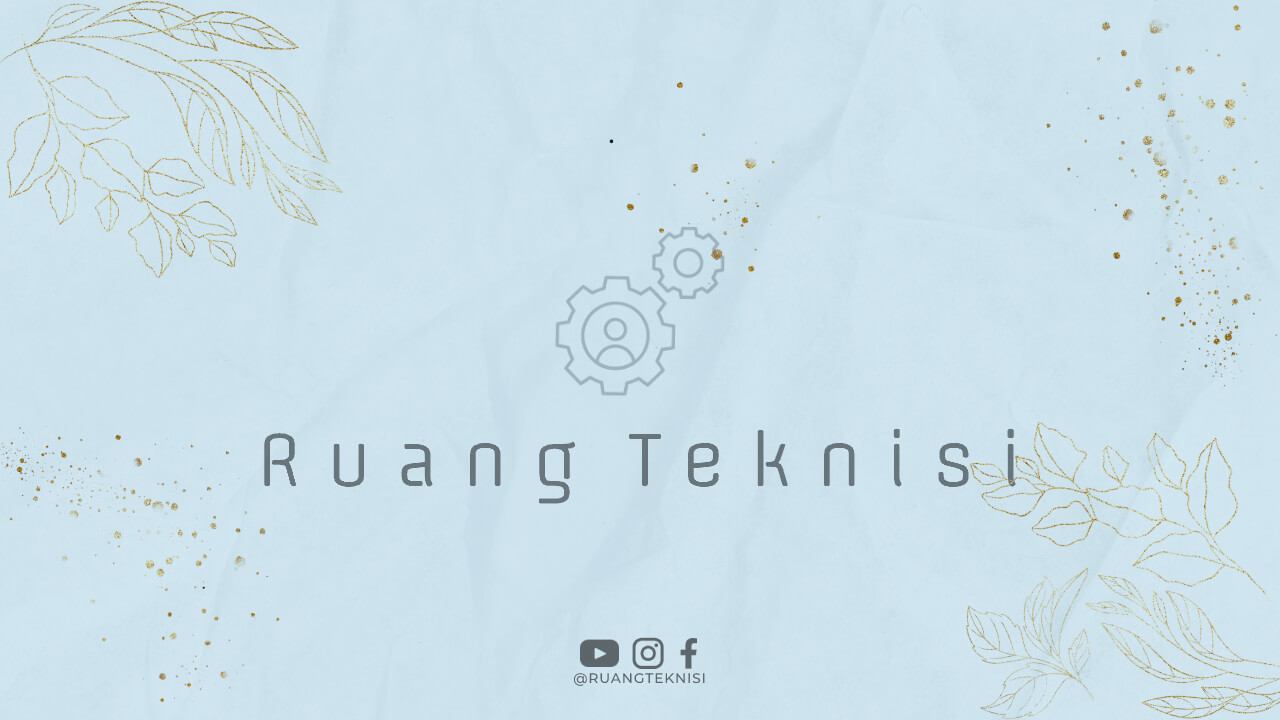Section 1: Understand the Test Format
Before embarking on your preparation journey, it is crucial to thoroughly understand the format of the university admission test you will be taking. Each university may have its own specific test structure, including the number of sections, types of questions, and time limits. By familiarizing yourself with the test format, you can develop a targeted study plan and approach. Let’s explore some key aspects to consider when understanding the test format:
1.1 Types of Questions
Start by identifying the different types of questions that may appear in the test. These could include multiple-choice questions, essay prompts, problem-solving exercises, or even practical assessments. Understanding the question types will help you strategize your approach to each section of the test.
1.2 Time Allocation
Knowing how much time you have for each section is crucial for effective time management during the test. Some sections may have longer time limits, while others may require you to answer questions quickly. Take note of the time allocated for each section and adjust your study plan accordingly.
1.3 Marking Scheme
Another important aspect is understanding the marking scheme. Are all questions worth the same number of marks, or do some carry more weight? Are there negative marks for incorrect answers? Understanding the marking scheme will guide your decision-making process during the test, helping you prioritize certain questions over others.
1.4 Test Sections
Examine the different sections of the test and the topics they cover. For example, an admission test may include sections on mathematics, verbal reasoning, logical thinking, or subject-specific knowledge. Identifying the sections will allow you to allocate appropriate study time to each one based on your strengths and weaknesses.
Section 2: Create a Study Plan
Developing a well-structured study plan is crucial for efficient and effective preparation. A study plan will not only help you cover all necessary topics but also ensure that you allocate sufficient time to revise and practice. Here’s how to create a comprehensive study plan:
2.1 Assess Available Time
Start by assessing the total time you have available for test preparation. Take into account your other commitments, such as classes, work, or extracurricular activities. This will help you realistically plan your study schedule without overwhelming yourself.
2.2 Identify Priority Areas
Identify the subjects or sections that require more attention based on your strengths and weaknesses. Allocate more study time to these priority areas to enhance your understanding and performance in those specific sections.
2.3 Break It Down
Break down your study plan into smaller, manageable chunks. Divide the syllabus or topics into daily or weekly study goals. This will prevent you from feeling overwhelmed and make your preparation more structured and organized.
2.4 Set Realistic Targets
Set realistic targets for each study session. Rather than aiming to cover an entire subject in one sitting, break it down into subtopics or chapters. This approach will help you track your progress and ensure that you understand each concept thoroughly.
2.5 Revision and Practice Time
Allocate dedicated time for revision and practice sessions in your study plan. Revision helps reinforce your understanding of concepts, while practice improves your problem-solving skills and familiarizes you with the test format. Regular revision and practice will boost your confidence and readiness for the test.
Section 3: Identify Your Weak Areas
Understanding your weaknesses is a crucial step towards targeted improvement. By identifying your weak areas, you can focus your efforts on strengthening those specific skills or knowledge gaps. Here’s how you can identify and address your weak areas:
3.1 Take Diagnostic Tests
Take diagnostic tests or practice questions to assess your current proficiency level. These tests can help pinpoint the areas where you struggle the most. Analyze your performance and review the questions you answered incorrectly to understand the underlying concepts or skills that need improvement.
3.2 Seek Feedback from Teachers or Mentors
Don’t hesitate to seek feedback from your teachers, mentors, or subject experts. They can provide valuable insights into your weaknesses and suggest effective strategies for improvement. Their guidance can help you overcome challenges and enhance your performance in specific areas.
3.3 Analyze Past Test Performance
If you have previously taken similar tests or practice exams, review your performance and analyze the areas where you consistently scored lower. This will shed light on the topics or question types that need more attention. Focus on understanding the underlying concepts and practicing similar questions to improve your performance.
3.4 Self-Assessment
Regularly assess your own performance and progress. Reflect on your study sessions, practice tests, and mock exams. Identify patterns of errors or areas where you feel less confident. Self-assessment will help you acknowledge your weaknesses and motivate you to work on them diligently.
3.5 Targeted Study Approach
Once you have identified your weak areas, develop a targeted study approach to address them. Allocate more study time to these topics, seek additional resources or expert guidance, and practice related questions extensively. With focused and consistent effort, you can gradually turn your weaknesses into strengths.
Section 4: Seek Guidance
When preparing for university admission tests, seeking guidance from experienced individuals can greatly enhance your preparation. Teachers, mentors, tutors, or even peers who have already gone through the process can provide valuable insights, strategies, and support. Here’s how you can make the most of guidance:
4.1 Consult with Teachers
Arrange meetings with your subject teachers to discuss any doubts or difficulties you may have. They can clarify concepts, provide additional resources, or suggest effective study techniques. Your teachers have extensive knowledge and experience, so don’t hesitate to seek their guidance.
4.2 Professional Tutors or Mentors
If you require additional help in specific subjects or areas, consider seeking assistance from professional tutors or mentors who specialize in university admission test preparation. They can provide personalized guidance, tailor study plans to your needs, and offer expert tips to excel in the test.
4.3 Join Study Groups or Online Forums
Joining study groups or online forums can be beneficial as you can interact with fellow test-takers. Engage in discussions, share study resources, and exchange ideas. Collaborating with others can provide fresh perspectives, help clarify doubts, and motivate you to stay focused on your preparation.
4.4 Attend Workshops or Prep Courses
Consider attending workshops or prep courses specifically designed for university admission test preparation. These programs often provide comprehensive study materials, expert guidance, and simulated test environments. They can equip you with effective strategies and boost your confidence for the actual test.
4.5 Utilize Online Resources
Make the most of online resources such as video tutorials, practice tests, and interactive quizzes. Numerous websites and platforms offer free or paid resources catered to university admission tests. These resources can supplement your study material and provide additional practice opportunities.
Section 5: Practice Regularly
Consistent practice is essential for improving your test-taking skills and confidence. Regular practice helps familiarize you with the test format, enhances your problem-solving abilities, and builds endurance to perform well under time constraints. Here’s how you can make practice an integral part of your preparation:
5.1 Solve Sample Papers
Acquire sample papers or previous years’ question papers to gain insight into the test structure, question types, and difficulty level. Solve these papers under simulated test conditions to gauge your performance and identify areas that require improvement. Analyze your answers and learn from any mistakes.
5.2 Time Yourself
Time management is crucial during the test. Practice solving questions within the given time limits to improve your speed and accuracy. Start by allocating the recommended time for each section and gradually reduce it to challenge yourself. This exercise will help you become more efficient and comfortable with time-bound tasks.
5.3 Simulate Test Environment
Create a test-like environment during your practice sessions. Find a quiet and comfortable space, eliminate distractions, and follow the same test rules and conditions as closely as possible. This will help you adapt to the actual test environment and minimize anxiety on the test day.
5.4 Analyze and Learn from Mistakes
After each practice session, thoroughly analyze your performance and review the questions you answered incorrectly. Identify the reasons behind your mistakes, whether it’s a lack of understanding, misinterpretation, or time management issues. Learn from these mistakes and focus on improving those areas in subsequent practice sessions.
5.5 Vary Practice Materials
Utilize a variety of practice materials, including textbooks, online resources, and mock exams. This diversity exposes you to different question formats, topics, and difficulty levels. It also helps you develop adaptability and versatility in tackling unfamiliar questions, further enhancing your problem-solving skills.
Section 6: Use Online Resources
In today’s digital age, online resources have become invaluable tools for test preparation. They provide access to a wide range of study materials, practice tests, and interactive tools to enhance your understanding and performance. Here’s how you can make the most of online resources:
6.1 Video Tutorials
Video tutorials are an excellent way to grasp complex concepts and learn from experienced instructors. Search for educational platforms or YouTube channels that offer video tutorials specifically tailored for university admission test preparation. These tutorials often break down difficult topics into easily understandable explanations, helping you solidify your understanding.
6.2 Interactive Quizzes and Games
Engaging in interactive quizzes and games can make your test preparation more enjoyable and interactive. Look for websites or mobile applications that offer interactive quizzes related to the subjects or topics covered in the test. These quizzes not only reinforce your knowledge but also provide immediate feedback, allowing you to track your progress.
6.3 Practice Tests and Mock Exams
Online platforms often provide practice tests and mock exams that closely simulate the actual test experience. These tests allow you to gauge your performance, simulate time constraints, and get accustomed to the test format. Regularly take these practice tests to assess your progress and identify areas that need further improvement.
6.4 Online Study Communities
Joining online study communities or forums can provide a supportive network of fellow test-takers. These communities allow you to connect with others who are going through the same preparation process. Share study resources, ask questions, and engage in discussions to gain new perspectives and insights.
6.5 Online Study Guides and E-books
Look for online study guides and e-books that cover the topics included in the test syllabus. These resources often provide comprehensive explanations, examples, and practice questions. They can complement your existing study materials and offer alternative explanations or approaches to challenging topics.
6.6 Online Courses and Webinars
Consider enrolling in online courses or webinars specifically designed for university admission test preparation. These courses provide structured lessons, expert guidance, and interactive learning opportunities. They can help you strengthen your conceptual understanding, master test-taking strategies, and build confidence for the actual test.
Section 7: Manage Your Time Effectively
Time management is a crucial aspect of performing well in university admission tests. These tests often have strict time limits, so it’s essential to develop strategies to utilize your time wisely. Here are some effective time management techniques:
7.1 Know the Test Structure
Understand the structure of the test and the time allocation for each section. Identify which sections require more time or carry more marks. This knowledge will help you plan your approach and allocate time accordingly.
7.2 Practice Time-Bound Questions
To improve your speed and efficiency, regularly practice solving time-bound questions. Set a timer and challenge yourself to complete questions within the given time limit. As you practice, you will develop a sense of how much time you should allocate for different types of questions.
7.3 Learn to Prioritize
During the test, learn to prioritize questions based on their difficulty level and marks allotted. Start with the questions you find easier or those that carry more weightage. Prioritizing will ensure that you attempt the most valuable questions first and maximize your chances of earning higher marks.
7.4 Avoid Getting Stuck
If you encounter a difficult question, don’t get stuck on it for too long. Instead, mark it and move on to the next question. Spending excessive time on one question can hinder your progress and cause unnecessary stress. Allocate time at the end to revisit the marked questions if you have time remaining.
7.5 Use Mental Mapping Techniques
Mental mapping involves quickly outlining your approach or key points before starting to answer a question. This technique helps you stay organized and focused, saving valuable time during the test. Practice mental mapping during your preparation to improve your efficiency in tackling questions.
7.6 Take Mock Tests with Time Constraints
Regularly take mock tests under timed conditions to simulate the actual test scenario. This will train you to manage your time effectively and develop a sense of pace. Analyze your performance in these mock tests to identify areas where you need to improve your time management skills.
Section 8: Improve Your Reading Skills
Many university admission tests include sections that assess your reading comprehension skills. Enhancing your reading skills can significantly improve your performance in these sections. Here are some strategies to improve your reading skills:
8.1 Read Regularly
Develop a habit of reading regularly, both for leisure and academic purposes. Read a variety of materials such as newspapers, magazines, academic articles, and literature. This practice will expose you to different writing styles, enhance your vocabulary, and improve your overall reading comprehension.
8.2 Annotate and Summarize
While reading, annotate important points, unfamiliar words, or passages that require further understanding. Summarize the main ideas or arguments in your own words. These techniques will help you actively engage with the text, improve your understanding, and retain information more effectively.
8.3 Practice Speed Reading
Speed reading techniques can help you read faster without sacrificing comprehension. Practice techniques such as skimming, scanning, and chunking to increase your reading speed. However, ensure that you still understand the main ideas and details of the text as you apply these techniques.
8.4 Focus on Active Reading
Avoid passive reading where you simply go through the text without actively engaging with it. Actively read by asking questions, making predictions, and forming connections between ideas. This approach will improve your understanding and enable you to answer comprehension questions more accurately.
8.5 Practice Passage Analysis
Regularly practice analyzing and interpreting passages. Break down complex passages into smaller sections, identify the main ideas, and determine the relationships between different ideas or arguments. This practice will improve your ability to comprehend and analyze passages effectively during the test.
8.6 Take Practice Reading Comprehension Tests
Utilize practice reading comprehension tests to familiarize yourself with the types of questions asked and the time constraints involved. Practice extracting key information, identifying main ideas, and answering questions based on the given passage. Regular practice will enhance your reading comprehension skills and increase your efficiency in answering related questions.
Section 9: Build Strong Fundamentals
Having a strong foundation in the fundamental concepts of each subject is crucial for performing well in university admission tests. Here are some strategies to build and reinforce your foundational knowledge:
9.1 Review Basic Concepts
Allocate time to revise and reinforce basic concepts, formulas, definitions, and key principles of each subject. Ensure that you have a solid understanding of the fundamental building blocks upon which more complex concepts are based. Regularly revisit these basics to strengthen your overall knowledge.
9.2 Create Concept Maps
Concept maps are graphical representations that illustrate the relationships between different concepts or ideas. Create concept maps for each subject or topic to visually organize your understanding. This technique will help you identify connections, identify knowledge gaps, and enhance your comprehension of the subject matter.
9.3 Practice Application of Concepts
Merely memorizing concepts is not enough; you need to practice applying them to solve problems or answer questions. Regularly practice solving problems or answering questions that require the application of fundamental concepts. This practice will deepen your understanding and improve your ability to tackle complex problems.
9.4 Seek Clarification
If you encounter any doubts or confusion regarding fundamental concepts, seek clarification from your teachers or mentors. Don’t hesitate to ask questions and request additional explanations. Clearing up any misconceptions early on will prevent them from hindering your progress later.
9.5 Practice with Varied Difficulty Levels
Practice questions that cover a range of difficulty levels. Start with basic questions to solidify your understanding and gradually move on to more challenging ones. This approach will strengthen your problem-solving skills, build confidence, and prepare you for the varying difficulty levels in the actual test.
Section 10: Stay Calm and Confident
Maintaining a calm and confident mindset is essential for performing to the best of your abilities during the university admission test. Here are some strategies to stay composed and boost your confidence:
10.1 Positive Self-Talk
Avoid negative self-talk and cultivate positive affirmations. Remind yourself of your capabilities and the efforts you have put into your preparation. Replace self-doubt with positive statements that reinforce your confidence in your abilities.
10.2 Visualize Success
Visualize yourself successfully completing the test and achieving your desired results. Imagine yourself confidently answering questions, managing your time effectively, and overcoming any challenges that may arise. Visualization techniques can help reduce anxiety and enhance your self-belief.
10.3 Practice Relaxation Techniques
Learn and practice relaxation techniques such as deep breathing exercises or meditation. These techniques can help calm your mind, reduce stress,and improve your focus and concentration. Incorporate these techniques into your daily routine and utilize them before and during the test to stay calm and composed.
10.4 Avoid Last-Minute Cramming
Avoid the temptation to cram information right before the test. Instead, use the final days leading up to the test for revision and mental preparation. Cramming can increase stress levels and hinder your ability to recall information during the test. Trust in the knowledge and skills you have developed through consistent preparation.
10.5 Take Care of Yourself
Ensure you prioritize self-care during your preparation period. Get enough sleep, eat nutritious meals, and engage in physical activity. Taking care of your physical and mental well-being will provide you with the energy and clarity needed to perform your best on the test day.
10.6 Stay Positive and Resilient
Approach challenges and setbacks with a positive and resilient mindset. Understand that it is normal to face difficulties during the preparation process, and view them as opportunities for growth. Embrace a growth mindset and learn from any mistakes or setbacks, using them to fuel your motivation and determination.
10.7 Trust Your Preparation
Have confidence in the preparation you have undertaken. Trust that the time and effort you have invested will pay off. Remind yourself of the progress you have made and the skills you have developed. Trusting in your preparation will help alleviate anxiety and allow you to perform to the best of your abilities.
Conclusion
Preparing for university admission tests requires precision, dedication, and a strategic approach. By understanding the test format, creating a well-structured study plan, identifying your weak areas, seeking guidance, practicing regularly, utilizing online resources, managing your time effectively, improving your reading skills, building strong fundamentals, and maintaining a calm and confident mindset, you can enhance your chances of success. Remember, preparation is key, so start early, stay focused, and believe in your abilities. Good luck with your university admission tests!




